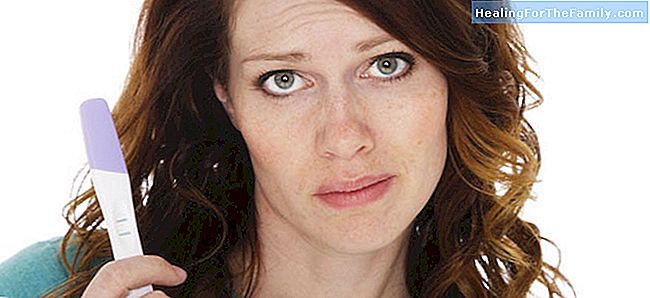Main causes of female infertility
The difficulties of becoming parents affect 15% of couples in developed countries, but in some countries such as Spain, this figure rises to 18%, where 3% of babies are born with assisted reproduction techniques. Infertility is a condition that affects both men and women. It is estimated that in 40%
The difficulties of becoming parents affect 15% of couples in developed countries, but in some countries such as Spain, this figure rises to 18%, where 3% of babies are born with assisted reproduction techniques.
Infertility is a condition that affects both men and women. It is estimated that in 40% of the cases the origin is masculine, in another 40% the origin corresponds to the woman and in the remaining 20% it has a mixed cause. We explain in this case what are the main causes of female infertility.
Some of the indirect causes of female infertility

Infertility is diagnosed when a couple tries unsuccessfully to become pregnant for a period of one year. But not only that, if the woman manages to become pregnant but suffers spontaneous abortions we are also facing a situation of female infertility.
Female infertility rates are increasing, partly because the average age at which a woman begins to attempt pregnancy is being delayed (the highest peak of pregnancy probability of a woman is, generally, among the 22 and the 26 years).
The reality is that, after age 35, the reproductive potential of women decreases, after 40 years, the probability of getting pregnant is less than 10%.
There are different factors that indirectly affect infertility, they are what we call risk factors:
1. Age: As we mentioned above, it is one of these risk factors. El 2. Tobacco:
As in men, tobacco affects the woman very negatively and can cause damage to the fallopian tubes and the cervix. And not only that, the probability of having a miscarriage is smoking women is greater than in non-smokers. Problemas 3. Weight problems: Being overweight or underweight can affect ovulation. Overweight causes hormonal imbalances that affect a woman's menstrual cycles and can therefore interfere with ovulation and hinder the ability to conceive. On the other hand, lack of weight can affect menstrual cycles, a BMI (Body Mass Index) less than 18.5 can cause ovulation to stop.
4. Alcohol: Moderate alcohol consumption does not affect a woman's fertility, but in the case of excessive consumption things change. Alcohol can affect egg production by altering a woman's body by releasing free radicals. This can be transformed in the absence of menstruation or ovulation disorders. In the case of achieving pregnancy, the woman with excessive consumption of alcohol has a greater risk of having a spontaneous abortion than the woman who does not consume alcohol or does it in a moderate way.
5. Sexual history: Sexually transmitted diseases such as gonorrhea can damage the fallopian tubes.
What are the main causes of female infertility As causes that act more directly on infertility we can mention:
1. Fallopian tube lesions
(tubal factor): The obstruction, or lack of permeability, of the fallopian tubes It is a serious inconvenience to allow pregnancy, since you are responsible for the displacement of the sperm until your encounter with the oocyte produced by the ovary.
If only one of the two tubes is obstructed, it is possible to achieve natural pregnancy, but if both are obstructed it is necessary to carry out an assisted reproduction procedure such as in vitro fertilization. 2. Endometriosis:
The endometrium is the lining of the uterine cavity, and its function is to house the zygote after fertilization. When this coating is located outside the uterine cavity we have a problem to be able to have a successful pregnancy.
This is because in this situation, the quantity and quality of the ovules is affected and sometimes, it also affects the fallopian tubes, decreasing their functionality. When it prevents pregnancy, it is necessary to go to an assisted reproduction treatment. Des 3. Ovulation Disorders:
One out of every four couples with fertility problems suffer from ovulation disorders, this can occur due to failures in the regulation of reproductive hormones or problems in the ovaries.
4. Chronic diseases:
How can be cancer, asthma, diabetes, depression, etc. or taking medications to treat these disorders. Dr. José Manuel Pintado
Medical Director and Head of the Reproduction Unit of the Pintado Medical Center












